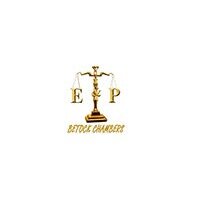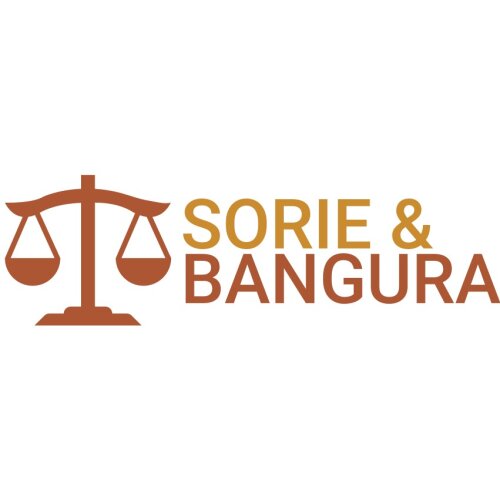Best Financial Services Regulation Lawyers in Freetown
Share your needs with us, get contacted by law firms.
Free. Takes 2 min.
List of the best lawyers in Freetown, Sierra Leone
About Financial Services Regulation Law in Freetown, Sierra Leone
Financial services regulation in Freetown, Sierra Leone, is a critical component of the national economic framework. It is designed to oversee the activities of financial institutions such as banks, insurance companies, and investment firms, ensuring they operate fairly, transparently, and in alignment with national and international standards. The regulation aims to protect consumers, maintain stability in the financial system, and promote economic growth. The Bank of Sierra Leone is the primary regulatory authority responsible for enforcing these regulations and ensuring compliance within the financial sector.
Why You May Need a Lawyer
Legal assistance in financial services regulation can be crucial in various circumstances, including:
- Starting or expanding a financial services business, where navigating regulatory requirements is essential.
- Facing compliance issues, such as audits or investigations by the Bank of Sierra Leone.
- Dealing with disputes related to financial transactions or services, whether as a consumer or provider.
- Ensuring proper licenses or permits are in place for operating financial activities.
- Understanding the implications of new regulations or updates to existing financial laws.
Local Laws Overview
The financial services sector in Sierra Leone is regulated by several key pieces of legislation and regulations. The Banking Act provides a comprehensive framework for the operation of banks and includes specific provisions regarding capital requirements, licensing, and consumer protection. The Credit Reference Act establishes guidelines for credit information sharing and credit reporting, aiming to enhance transparency. Moreover, anti-money laundering and counter-terrorism financing regulations are enforced to prevent illicit activities within the financial system.
Frequently Asked Questions
What is the role of the Bank of Sierra Leone?
The Bank of Sierra Leone is the central bank responsible for overseeing and regulating the financial sector to ensure stability, protect consumers, and promote compliance with financial laws.
Do all financial institutions require a license in Sierra Leone?
Yes, all financial institutions, including banks, insurance companies, and investment firms, must obtain the necessary licenses from the Bank of Sierra Leone before commencing operations.
What are the common compliance issues faced by financial institutions?
Common compliance issues include inadequate know-your-customer procedures, non-compliance with anti-money laundering regulations, and not adhering to reporting requirements.
Can consumers file complaints against financial institutions?
Yes, the Bank of Sierra Leone provides a channel for consumers to file complaints against financial institutions if they believe their rights have been violated or they’ve been subject to unfair practices.
How are disputes in financial services typically resolved?
Disputes can be resolved through negotiations, mediation, or, if necessary, legal action in accordance with the financial regulatory framework.
Are there penalties for non-compliance with financial regulations?
Yes, financial institutions that fail to comply with regulatory requirements may face penalties, including fines, license revocations, or other legal actions.
How does the regulation impact international financial transactions?
The regulations ensure that international transactions adhere to global standards, including anti-money laundering and counter-terrorism financing measures.
What is required to start a financial services company in Freetown?
Starting a financial services company requires obtaining the necessary licenses, meeting capital requirements, and ensuring compliance with relevant financial regulations.
What protections exist for consumers using financial services?
Consumers are protected through regulations that enforce fair lending practices, clear disclosure requirements, and mechanisms to resolve grievances.
How can I stay informed about changes in financial services regulation?
Staying informed requires regularly checking updates from the Bank of Sierra Leone, consulting with legal professionals, and attending relevant workshops and seminars.
Additional Resources
To gain further insights into financial services regulation in Sierra Leone, you may consider the following resources:
- Bank of Sierra Leone: The central authority overseeing financial services regulation.
- Sierra Leone Association of Commercial Banks: An association that provides information and guidance on banking practices.
- Consumer Protection Agency: Provides resources and assistance to consumers in financial matters.
- Sierra Leone Law Reform Commission: Offers updates on legal reforms, including finance-related legislation.
Next Steps
If you need legal assistance in financial services regulation in Freetown, Sierra Leone, consider the following steps:
- Contact a Legal Professional: Engage with a lawyer experienced in financial regulations to provide personalized advice and representation.
- Gather Documentation: Compile all relevant documents, including licenses, contracts, and correspondence, to assist in providing clear information to your legal advisor.
- Visit the Bank of Sierra Leone: For inquiries related to licensing and compliance, visit the bank's office for guidance and official procedures.
- Attend Workshops: Participate in workshops and seminars conducted by industry bodies and the Bank of Sierra Leone to stay updated on regulatory changes.
Lawzana helps you find the best lawyers and law firms in Freetown through a curated and pre-screened list of qualified legal professionals. Our platform offers rankings and detailed profiles of attorneys and law firms, allowing you to compare based on practice areas, including Financial Services Regulation, experience, and client feedback.
Each profile includes a description of the firm's areas of practice, client reviews, team members and partners, year of establishment, spoken languages, office locations, contact information, social media presence, and any published articles or resources. Most firms on our platform speak English and are experienced in both local and international legal matters.
Get a quote from top-rated law firms in Freetown, Sierra Leone — quickly, securely, and without unnecessary hassle.
Disclaimer:
The information provided on this page is for general informational purposes only and does not constitute legal advice. While we strive to ensure the accuracy and relevance of the content, legal information may change over time, and interpretations of the law can vary. You should always consult with a qualified legal professional for advice specific to your situation.
We disclaim all liability for actions taken or not taken based on the content of this page. If you believe any information is incorrect or outdated, please contact us, and we will review and update it where appropriate.












